2563 “NO”, 165 “Yes”: Students of JNU Vote Out the VC In a Historic Referendum !
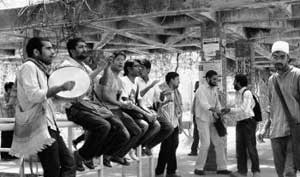 A First ever referendum in JNU
A First ever referendum in JNU
On Tuesday, 20th April, as many as 2741 students of JNU cast their votes in a historic, first-of-a-kind referendum. The question posed before the student community was: Should the provisions of the JNU Act be amended so as to allow the VC to get a second term? The answer was a resounding ‘NO’, with 2563 students voting against a second term for the VC and a small minority of 165 voting in favour of extending his term.
Despite the fact that this was a busy period in the academic calendar and many were preparing for exams, students participated enthusiastically in the referendum, cutting across political divisions and groups. From the outset itself, AISA set the tone of the agitation and spearheaded student participation and mobilization against the administration’s attempts to tamper with the JNU Act. This exercise in direct democracy was organized and conducted by a referendum committee of students who ensured that the entire process was conducted in a peaceful manner.
Through this referendum, the message sent out by the students of JNU was loud and clear: that they had borne the brunt of this repressive administration for long enough and were ready to accept it no longer. With their massive and spirited participation, they succeeded in delivering a body-blow to the administration’s agenda of destroying JNU.
The decisive mandate of the students’ referendum and combined protests by students and teachers occurred in the run up to the Executive Council meeting of 27 April. As a result, the proposal to amend the clause in the statute of JNU to allow a Vice-Chancellor to hold a second term was decisively rejected.
The students’ referendum proved to have a decisive element in this struggle. It showed that students have the power not just to embarrass and confront the administration, but to effectively vote out the VC. Against those who thought that a VC could be installed like a dictator, the students of JNU asserted that this could not be so. The example set in JNU has the potential to create a new chapter in the students’ movement, showing how we can translate opposition into an effective result. Students are the major stakeholders of the university and their voices must be heard.
The Dubious Politics of the MHRD and Moves to Change the JNU Act
The extension of the VC’s tenure would have meant the uninterrupted reign of an autocratic administration for a full 10 years. It would have meant a continuation of their anti-student, casteist and corrupt attitudes and policies. At present, in JNU, the Vice-Chancellor’s term stands at five years. For the VC’s term to be extended, the very act and statutes governing the functioning of JNU would have to be changed. The VC and his coterie in the administration were trying to do this behind the backs of the university community. But when confronted by the united resistance of students and teachers, they were forced to bow down.
What has been most shocking is the way in which the administrative coterie tried to push through this proposal in the EC without even engaging in a semblance of consultation. They did not think of consulting any section of the university community, neither students nor karamcharis nor teachers. As a result, the Students’ Referendum was held to give students a say. The referendum’s ‘NO’ to the VC served to tell the MHRD, the state machinery, this administration and this Vice-Chancellor that the JNU Act cannot be tampered with, that changes cannot be made against the wishes of the student community.
This game plan to tamper with JNU was not the brain-child of a few administrative officials alone. Rather, the directive came from the MHRD which spoke of allowing a second term for VC’s who have performed well. Even more shockingly, this circular spoke of how such a move was required since there was a ‘dearth of talent’ given the absence of capable VC’s who could run universities.
Such arguments by the MHRD are not only patently false but also discredit a university such as JNU. From its inception, JNU has functioned very well under VC’s who have been given only one five-year term. Also, at the present juncture, nearly fifteen of JNU’s senior professors are serving as Vice-Chancellors across the country and many have also done so in the past. Why then was the MHRD arguing for a dearth of talent in such a university? The focus of the MHRD’s intentions was clear: it was to allow the continuance of pliant VCs who accepted the pro-Corporate and anti-student agenda of the Indian state. The VCs of JNU and Delhi who have been marked by their slavish stances towards elitist and corporate agendas were singled out for this ‘honour’.
Assaults on the heart and soul of JNU
From the outset of his tenure, the present Vice-Chancellor has been opposed to the humanistic, egalitarian and democratic vision that represents the best of JNU. Instead, he has treated the very institution of JNU and its ethos with sheer contempt and open ridicule. The entire tenure of this VC was marked by attempts at implementing a whole range of neo-liberal agendas on the campus and at the same time, scuttling policies of equity and social justice as much as possible.
Student protests and campus democracy — a hallmark of JNU’s culture — were met during this administration’s tenure with brutal crackdowns instead of any sensitivity to appreciate the essence of the student’s concerns. Nowhere was this more evident than in 2006-07, when students took up the issue of minimum wages for workers, the VC should have been proud to be at the helm of affairs in a university where students expressed such concerns. Instead, he repeatedly tried to cover up the massive corruption of the contractor-administration nexus and punished students who stood for workers’ rights.
The last few years have been a period of uninterrupted and unprecedented assaults on the very heart and soul of JNU. The track record of the present VC has been one of a total assault on JNU’s ethos. All of this has been consciously done and implemented, it has been part and parcel of the VC’s vision and agenda for JNU, and his administration implemented it in every way. In sum, the last five years have been a period marked by:
- Sustained attempts to roll in commercialization, fee hikes and user charges.
- Pilferage of Public Money, Mindless Construction and ‘Beautification’, Corruption in Library and other Purchases, Massive violation of workers’ rights.
- Criminal stealing of OBC seats using casteist and faulty “cut-off” norm for OBC students violating MHRD and Supreme Court Directives.
- Flagrant violation of constitutional provisions of SC/ST Reservations in faculty positions.
- Misdirection of funds received in the name of implementing OBC reservations on expensive instruments unrelated to the mandated infrastructural expansion.
- Assault on political and cultural expression with draconian circulars to curb and censor public meetings and film screenings.
- An authoritarian culture marked by repeated crackdowns on protests and student activists.
- A free hand to communal lumpens and a biased targeting of all other political activists.
- An insensitive administration which violates all promises and agreements, a Vice-Chancellor who is always unavailable to students and teachers and discourages all forms of dialogue.
The University Community Stands United
Over the last few months, the entire university community has stood united and opposed all attempts to amend the JNU Act and extend the term of the Vice-Chancellor. The students’ referendum and the combined resistance of students and teachers emphasized that if a university is to function in a democratic and accountable manner, then a nominated post like that of VC (where appointments are made on the basis of political patronage of the government of the day) MUST NOT be vested in any individual for a whole decade.
AISA congratulates the student community of JNU for proving once again that they have the strength and courage to defend the humanist and egalitarian ethos of this university which has been built over the years against the organized assaults of governments or their pliant VCs.
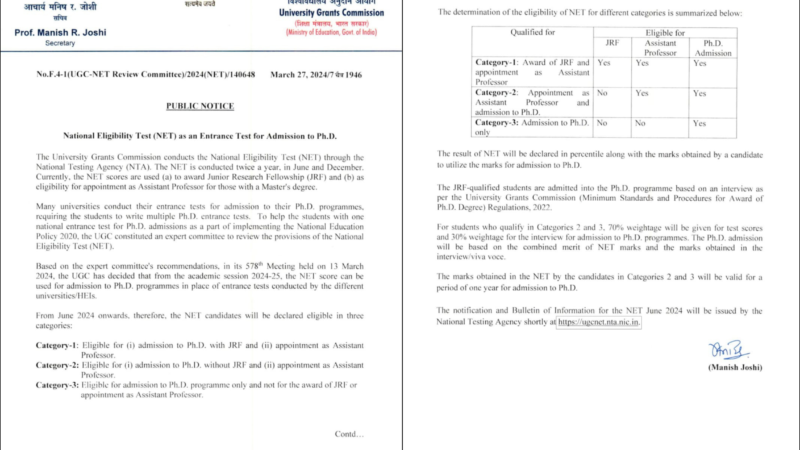
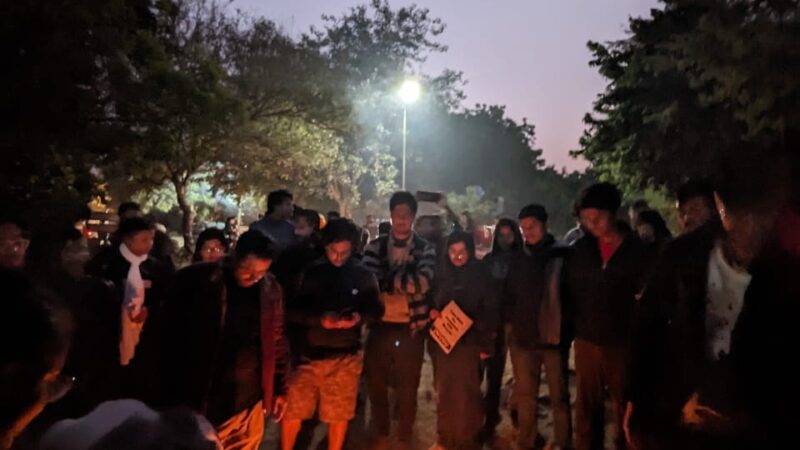
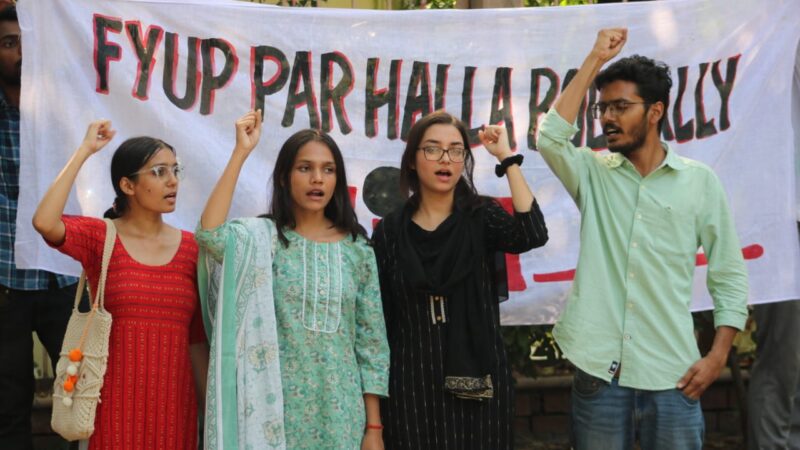
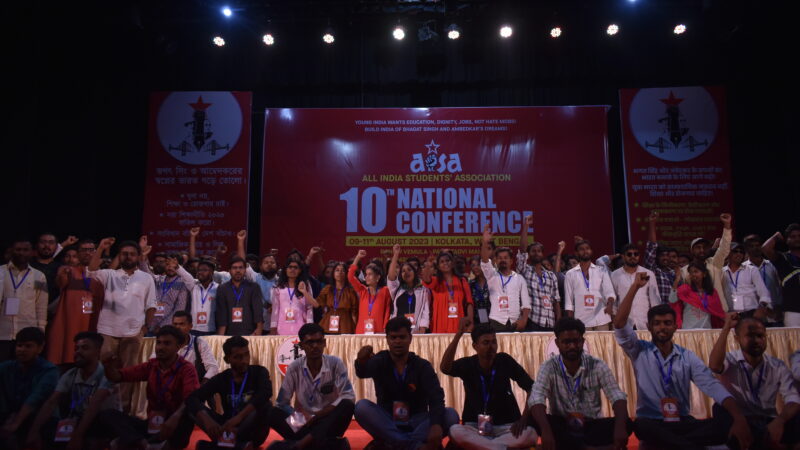
AISA’s Struggle FOR a Democratic, Socially Sensitve,
Inclusive campus…… LONG LIVE !!!!